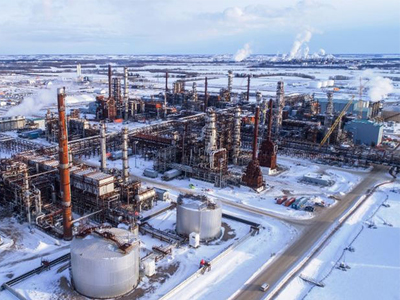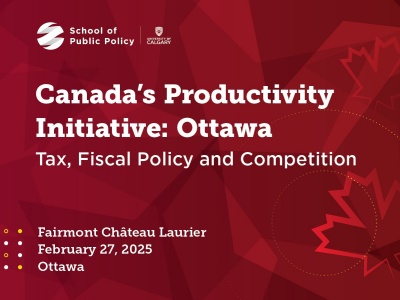Report finds Alberta’s North West Redwater Sturgeon Refinery’s prospects of making money are bleak

Canada’s first new oil refinery in 34 years has already been criticized for its soaring project costs and now the North West Redwater [NWR] Sturgeon Refinery north of Edmonton is being criticized in a damning report out of the University of Calgary.
“The NWR Sturgeon Refinery seemed like a good idea on paper,” said a news release from the university’s School of Public Policy, “[but] Albertans are on a very long-term hook for a refinery unlikely to ever make money.”
The research is based on an economic model that makes assumptions on a number of variables and concludes that in its first full year of operation in 2019, the facility’s partners – the Alberta Petroleum Marketing Commission (APMC) and Canadian Natural Resources Ltd. (CNRL) – are projected to lose “a cash amount of about $24 million.”
“This loss is based on a comparison to the toll payers’ alternative of just selling the diluted bitumen feedstock at market prices,” the report reads.
“The [overall] risk [regarding the Sturgeon refinery project] is that it may turn out to be at best break-even and at worst, a money-losing proposition,” Livingston said at a news conference in Calgary on Wednesday.
“If the market conditions for feedstock – diluted bitumen – become very low and the value of diesel fuel becomes very high, it may be a profitable one… but the conditions we have today for diesel fuel are very favourable… and for WCS (Western Canadian Select) are very low. So I don’t think you can assume that the very favourable market conditions you have today will last for the full 30 years.”
Livingston suggested that while the Alberta government has been trying to encourage upgrading in the province since 2006, the Sturgeon refinery’s finances should give reason for the government to pause before investing further into it or other similar projects.
“The key point is, NWR Sturgeon Refinery has no risk,” he said. “Even though this refinery is not yet operating using diluted bitumen as feedstock, the terms of the tolling agreement said… tollpayers must start paying paying debt financing agreements for the senior debt on June 1.
“The taxpayers of Alberta’s share… is about $30 million… It’s like saying, ‘you have to start paying rent on your apartment even though it’s not ready to move into.”
When the refinery project was first proposed in 2008, it was projected to cost about $4 billion. On Wednesday, Livingston said the most recent capital cost was at $9.7 billion and added, “90 per cent of this capital cost is financed by debt [and] only 10 per cent by equity – that’s very highly leveraged.”
The project was championed by Ed Stelmach’s Progressive Conservative government and construction on the project began in 2013.
According to the refinery’s website, the facility has produced over 2.2 million barrels of diesel by processing synthetic crude oil into diesel since December 2017. Livingston said Phase 1 of the project is hoped to achieve commercial operation in the fourth quarter of this year.
The refinery has been billed as a forward-thinking project in Alberta’s oil sector; it is seen as a way of upgrading raw bitumen without moving it out of province while also creating jobs and featuring an environmentally-friendly component through a carbon capture and storage plan.
“The NWR Sturgeon Refinery is designed to process 79,000 barrels per day (bpd) of feedstock, consisting of 50,000 bpd of bitumen and 29,000 bpd of diluent (referred to as dilbit),” the report reads. “The refinery will produce petroleum products consisting of approximately 40,000 bpd of low sulphur diesel, 28,000 bpd of diluent and 13,000 bpd of other lighter petroleum products.
“It will also be able to capture 1.2 million tonnes per year of carbon dioxide emitted from the refinery’s operations. This captured carbon dioxide will be compressed, put into a pipeline and then injected into an existing oil field in order to achieve increased production of crude oil.”
Livingston’s recommends the government consider the risks of investing in the refinery’s Phase 2 and 3 plans.
“I have said, for Phases 2 and 3, take a good, hard look at that – if there’s such a good economic situation, why not let the private sector fund them?” he said. “There are three refineries currently in Edmonton, owned by Suncor, Imperial Oil and Shell, and all of those were built without any government assistance and all of those are doing fairly well from what I can see.”
In March, The Financial Post reported NWR and CNRL had suspended its plans for the second phase of the refinery project while they assessed the changing economics of the energy sector.
Source: Global News


